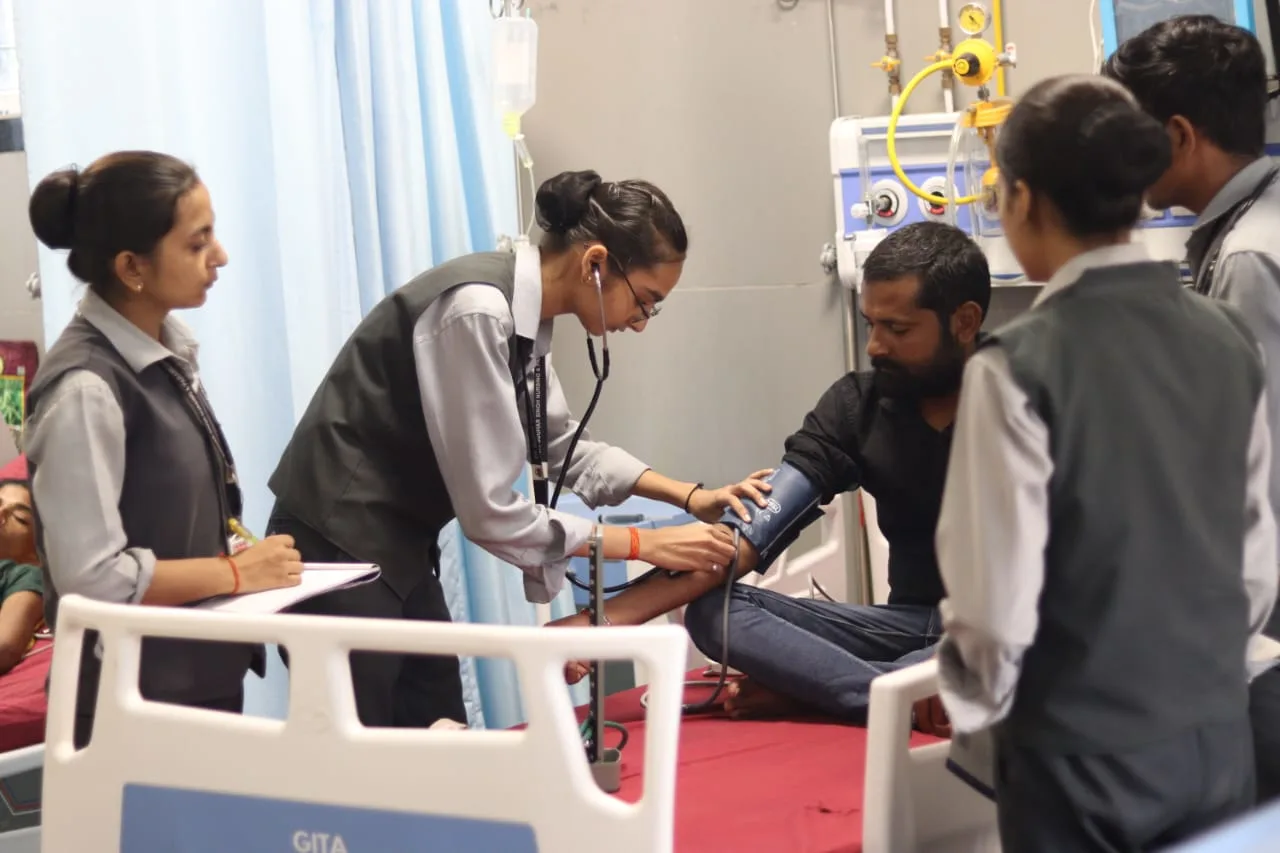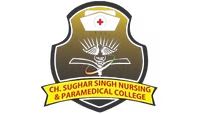Post Basic B.Sc. Nursing

Post Basic B.Sc. Nursing
The Post Basic B.Sc. Nursing program is a two-year undergraduate course designed specifically for registered nurses who have completed a General Nursing and Midwifery (G.N.M.) diploma and wish to upgrade their qualifications. This program bridges the gap between diploma-level and graduate-level nursing education, enabling nurses to enhance their knowledge, clinical skills, and professional growth.
At Ch. Sughar Singh Nursing & Paramedical College, the Post Basic B.Sc. Nursing course is structured to prepare nurses for advanced roles in patient care, nursing education, and leadership. By combining theoretical learning with practical training, the program equips students with the competencies required to meet the evolving demands of the healthcare industry, both in India and abroad.
Overview of Post Basic B.Sc. Nursing
The Post Basic B.Sc. Nursing program is a 2-year undergraduate degree designed specifically for candidates who have completed their General Nursing and Midwifery (G.N.M.) diploma. It acts as a bridge course that upgrades the knowledge and skills of diploma nurses, preparing them for higher professional roles in the healthcare sector.
At Ch. Sughar Singh Nursing & Paramedical College, the program holds recognition from the Uttar Pradesh State Medical Faculty and the Indian Nursing Council (INC) and affiliated with the Atal Bihari Vajpayee Medical University, Lucknow. The curriculum focuses on advanced clinical training, research, leadership, and community health to ensure that nurses are equipped with modern competencies for today’s healthcare environment.
Key Features of the Course
Duration: 2 years
Designed for G.N.M. diploma holders seeking higher education.
Provides both theoretical knowledge and practical training in nursing sciences.
Emphasizes evidence-based nursing practice, critical thinking, and problem-solving skills.
Why Choose Post Basic B.Sc. Nursing?
Career Advancement – Enhances qualifications, making nurses eligible for higher roles.
Higher Studies Pathway – Serves as a stepping stone for pursuing M.Sc. Nursing or specialized certifications.
Global Opportunities – Recognized in India and abroad, enabling work in countries like the UK, USA, Canada, and Gulf nations.
Professional Recognition – Upgrades a diploma nurse to a graduate nurse status, opening more career options.
Leadership and Teaching Roles – Prepares graduates for positions as Nurse Educators, Administrators, and Clinical Specialists.
Scope of Learning
Advanced Nursing Sciences – In-depth study of medical-surgical, pediatric, psychiatric, and community health nursing.
Research & Evidence-Based Practice – Training to use research in improving patient care.
Leadership & Management – Skills to take up supervisory and administrative positions in healthcare organizations.
Community Health Focus – Practical exposure to rural and urban healthcare systems.
The Post Basic B.Sc. Nursing program is not just an academic upgrade but a professional transformation. It prepares nurses to deliver quality care, take up leadership roles, and contribute to healthcare innovations at both national and international levels.
Career Opportunities after Post Basic B.Sc. Nursing
The Post Basic B.Sc. Nursing program expands the career scope of G.N.M. diploma holders, giving them access to advanced roles in the nursing profession. Graduates of this program are recognized as graduate nurses, which allows them to take on responsibilities in clinical, academic, and administrative settings. With the increasing demand for skilled healthcare professionals, Post Basic B.Sc. Nursing graduates are highly valued in both India and abroad.
At Ch. Sughar Singh Nursing & Paramedical College, students receive training not only in advanced nursing practices but also in leadership, research, and community health. This holistic approach ensures that our graduates have diverse career pathways to choose from, including immediate employment or higher education.
Job Profiles for Post Basic B.Sc. Nursing Graduates
Staff Nurse (Graduate Nurse) – Work in hospitals, clinics, and health centers with upgraded roles compared to diploma holders.
Nursing Supervisor / Ward In-charge – Manage nursing teams and patient care in hospital departments.
Community Health Nurse – Engage in rural and urban health projects to improve community health.
School Health Nurse – Provide healthcare services in schools and educational institutions.
Nursing Tutor / Clinical Instructor – Teach and train G.N.M. or nursing students in colleges and institutes.
ICU / OT Nurse – Work in specialized units like intensive care, operation theaters, and emergency care.
Home Healthcare Nurse – Deliver professional nursing care at patients’ homes.
Career Growth Opportunities
Higher Studies – Pursue M.Sc. Nursing in specialties like Medical-Surgical Nursing, Pediatrics, Psychiatry, Community Health, and Obstetrics & Gynecology.
Teaching & Research – Work as Nurse Educator, Clinical Instructor, or Researcher in nursing colleges and universities.
Administrative Roles – Become a Nursing Superintendent, Matron, or Health Officer with experience and higher qualifications.
Global Nursing Careers – Opportunities in Gulf countries, UK, Canada, Australia, and USA where graduate nurses are in high demand.
Key Highlights
Recognition as a graduate-level nurse with advanced knowledge and skills.
Opportunities across government hospitals, private healthcare, NGOs, and community health missions.
Provides a stable career with higher salary prospects compared to diploma-level positions.
Internationally recognized qualification that opens doors for overseas nursing practice.
Eligibility Criteria for Post Basic B.Sc. Nursing (2-Year Course)
Age Requirement
Minimum age for admission is 17 years on or before 31st December 2025.
Minimum Qualifications (As per INC Regulation)
The candidate must have passed the Common Nursing Entrance Test (CNET).
Candidates should have passed Higher Secondary / Senior Secondary / Intermediate (10+2) examination or an equivalent recognized exam.
Those who have done 10+1 in or before 1986 are also eligible.
Must have obtained a certificate in General Nursing and Midwifery (GNM) and be registered as R.N.R.M. with the Uttar Pradesh Nurses and Midwives Council.
A male nurse trained before the implementation of the new integrated course, besides being registered as a nurse, must produce evidence of training approved by the Indian Nursing Council in lieu of midwifery in any one of the following areas:
O.T. Techniques
Ophthalmic Nursing
Leprosy Nursing
TB Nursing
Psychiatric Nursing
Neurological and Neurosurgical Nursing
Community Health Nursing
Cancer Nursing
Orthopaedic Nursing
Additional Conditions
Colour blind candidates are eligible if they use colour corrective contact lenses or spectacles.
Selection is subject to medical fitness. No candidate will be permitted to join unless declared medically fit by the Medical Board constituted by the Government Medical College or the District CMO.
Married candidates are also eligible.
